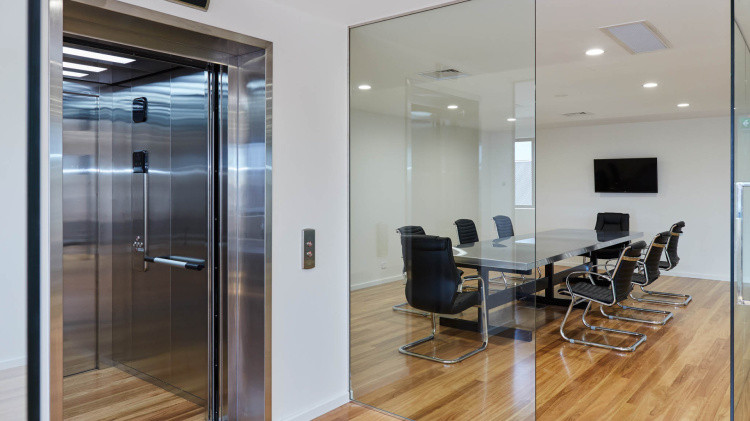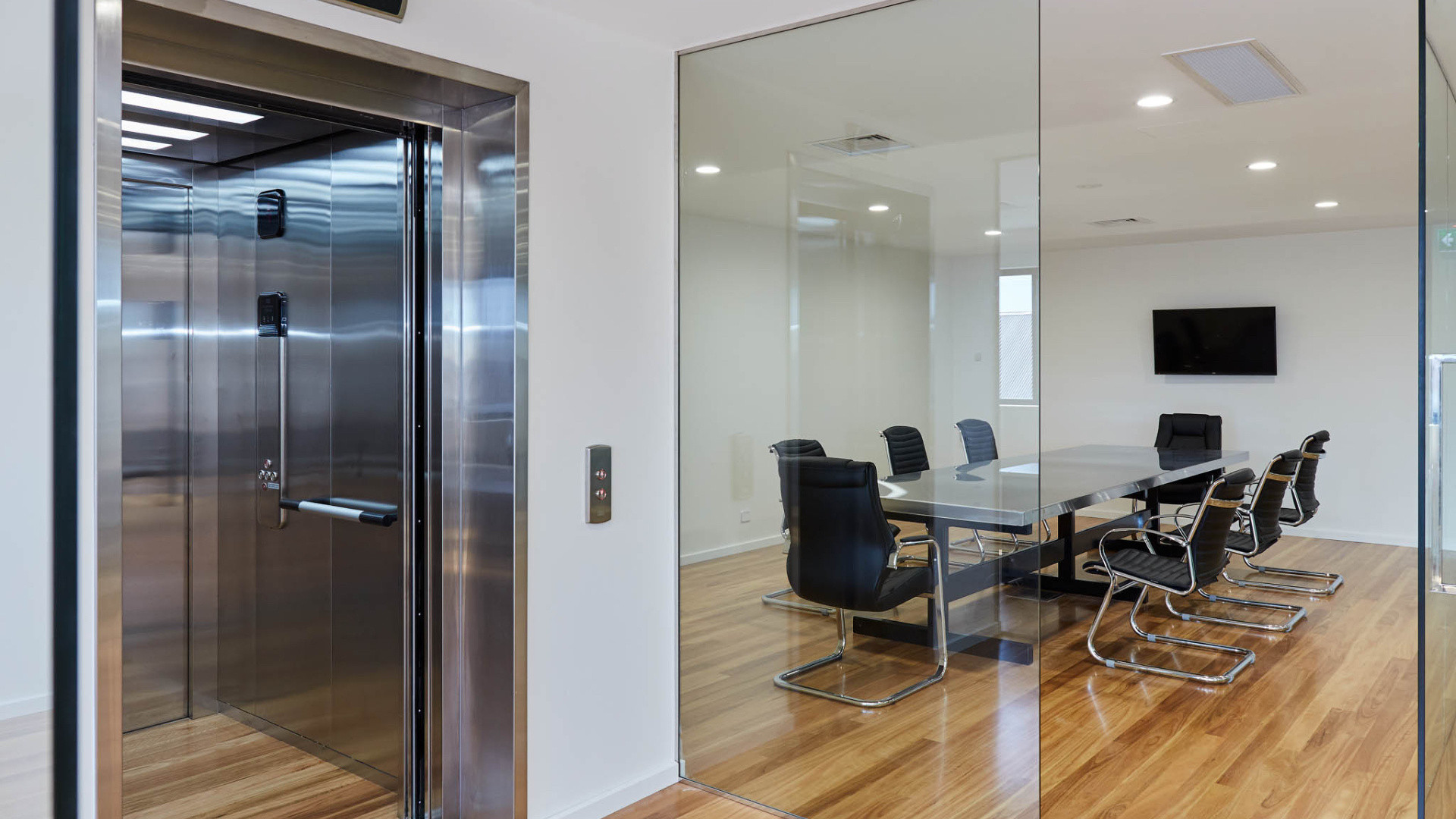Why Your Business Needs Commercial Flooring, Not Residential
Categories
Commercial
Post Date
07 Sep 2025
Key Takeaways:
- Commercial flooring must be durable, long-lasting, and versatile.
- Australian Standards and the NCC set mandatory requirements for commercial flooring compliance and safety.
- Commercial flooring differs significantly from residential flooring, making the latter unsuitable for business environments due to its lower durability and lack of regulatory compliance.
Running your business correctly isn’t just about your services or staff. It’s also about the flooring of your commercial space, which includes creating a safe, durable, and compliant environment. It’s a critical part of commercial construction and design, but it is often initially overlooked.
Commercial flooring stands apart from standard flooring, from brand design features to Australian safety standards. Without commercial flooring, your business could face increased costs, ongoing maintenance, and a decline in consumer safety.
The point is, commercial spaces are very public areas. They experience constant foot traffic, which tramples in dirt and moisture that severely degrades standard flooring. That’s why it’s designed to endure rigorous demands over long periods.
If you’re looking to upgrade your commercial space with new flooring, this article will help you understand the benefits it can bring to your business and how to make an informed investment.
What’s The Difference Between Commercial and Residential Flooring?
There are many different flooring types designed for various environments, ranging from residential floors to commercial and industrial flooring. While there may be a myriad of options available, we break down the key factors to look out for below.
Commercial Flooring
Commercial flooring is defined by its industry-standard durability, which matches the brand's appearance and withstands daily rigorous wear.
Three vital factors stand out in commercial flooring that you won’t find in any other flooring type:
-
High permanence and longevity: Despite exposure to harsh-wearing activities over extended periods, commercial floors are designed to resist damage.
-
Low maintenance: With additional seals and coatings, commercial flooring reduces maintenance costs and the need for replacements.
-
Aesthetics: The flooring choice plays a crucial role in designing a business environment that appeals to consumers. Some flooring features for commercial use are not available anywhere else.
Performance and aesthetics aren’t the only defining factors of commercial flooring. In Australia, specific building construction regulations are in place, outlined in the National Construction Code (NCC). These regulations are in place across all states of Australia and are meant to protect the public and ensure your business environment is compliant.
At Buildingwise Construction, informed decisions lead to better outcomes. We work closely with clients to ensure every flooring product used in your fit-out meets Australian standards and enhances the performance of your space. Talk to your commercial property developer about the products available to improve your business space.
To help businesses meet legal and operational standards, the National Construction Code (NCC) outlines several mandatory standards for commercial flooring. At Buildingwise Construction, we ensure compliance with every aspect of these codes. Here are 5 key requirements we prioritise in every flooring fit-out:
-
Slip Resistance: Ensure suitable slip-resistance features, as per AS 4586, in all public/movement areas (stairs, ramps, accessible facilities).
-
Fire Safety: Meet minimum fire-resistance levels (FRLs) for structural stability and separation and use materials with defined fire hazard properties under Specification C1.10.
-
Energy efficiency: Floors must contribute to the building’s overall thermal performance, helping reduce heating/cooling loads. Compliance is measured through minimum R-values (thermal resistance) as specified in Specification J1.6 of the NCC.
-
Code-Compliant Construction: Floor systems must be designed and built using Deemed-to-Satisfy solutions or certified Alternative Solutions that align with the structural and thermal performance requirements outlined in AS 2870 and AS 3600.
-
Acoustic Performance: In multi-storey commercial buildings, where separating floors must meet minimum sound insulation requirements, especially where offices, apartments, or public areas are stacked above/below each other. This ensures compliance with NCC Section F5 and AS/NZS 2107.
Residential Flooring
Residential flooring, while attractive and cost-effective, is not built to the same standard. It’s suited for low-traffic environments where comfort, style, and personal preference take priority.
Common residential materials, such as timber, plush carpet, or standard laminate, can quickly wear out in commercial applications, requiring costly replacements. Additionally, they often lack certification for slip resistance, fire rating, or commercial-grade warranties, exposing your business to unnecessary risk.
You can explore residential flooring options with Buildingwise Construction or consult our team for the best products to suit your needs.
Types of Commercial Flooring Options
Buildingwise Construction recommends various flooring choices suitable for smaller carpeted offices to larger-scale tiled or vinyl venues. While commercial flooring options can extend beyond the list below, these options are widely used across the commercial sector due to their mainstream commercial characteristics.
Commercial Carpets
-
Carpet tiles: Like standard commercial carpet flooring, carpet tiles are easy to install and replace. They are among the most popular choices for commercial carpet, as they can reduce costs and maintenance in the long term.
-
Carpet: Standard commercial-grade carpet is perfect for small and large offices, waiting rooms, conference areas, or spaces needing acoustic muting. Unlike the carpet found in your home, commercial carpet is engineered using strong fibres that are resistant to wear, tear and staining.
Commercial Tiles
Tile flooring is appropriate for the hospitality and retail industries. They come in flexible design options, are resistant to water, stains, and scratches, making them ideal for high-traffic areas that are prone to accumulating dirt.
Commercial Vinyl or Laminate
Vinyl and laminate flooring are budget-friendly options. You’ll often find these in healthcare facilities, retail spaces, and restaurants. They are generally easy to replace or repair in parts, providing a balance of comfort and durability.
Choose The Right Flooring For Your Commercial Space
Choosing the right flooring for your commercial space is a crucial aspect of your business environment. If you check the boxes in durability, longevity, and versatility, you will excel with uniqueness and functionality.
Ensure your commercial flooring meets Australian building standards and supports the success of your business. Ready to upgrade your space with durable, compliant commercial flooring? Consult our experts at Buildingwise Construction to see how you can maximise the value of your commercial space.




